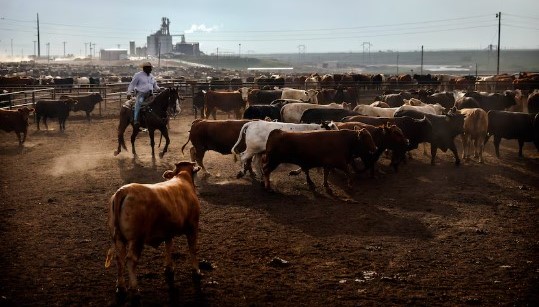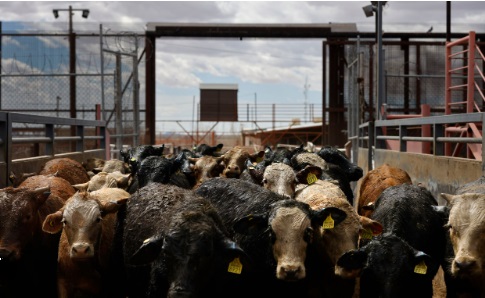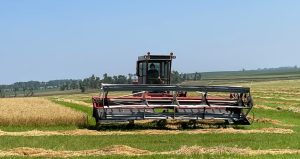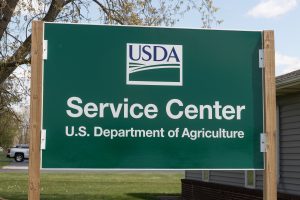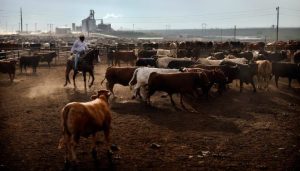
WASHINGTON, D.C. – The USDA has suspended imports of live cattle, bison, and horses from Mexico through southern ports of entry due to the continued northward spread of New World Screwworm (NWS).
U.S. Secretary of Agriculture (USDA) Brooke Rollins announced another suspension of live cattle, horse, and bison imports through U.S. ports of entry along the southern border due to the continued and rapid northward spread of NWS in Mexico, effective immediately. Rollins said NWS had been detected in remote farms as far north as Oaxaca and Veracruz, about 700 miles from the U.S border.
NWS was eradicated from the United States in 1966. In Mexico, NWS was also eradicated, with the eradication program completed in February 1991, according to the Food and Agriculture Organization. However, there have been subsequent outbreaks, with the latest one occurring in Mexico in November 2024.
In December 2024, following the November 2024 closure of the border due to the outbreak of NWS, the USDA’s Animal and Plant Health Inspection Service (APHIS) and Mexico agreed to and implemented a comprehensive pre-clearance inspection and treatment protocol to ensure safe movement and mitigate the threat of NWS. The program resulted in the resumed shipments of Mexican cattle and bison into the U.S. beginning in mid-February 2025.
In March 2025, funding was cut by USDA for animal disease control and prevention, including Highly Pathogenic Avian Influenza, New World Screwworm, and African Swine Fever from several agencies, including the Food and Agriculture Organization (FAO). That funding supported more than 180 outbreak investigations and responses in 22 countries and helped build the capacities of over 160 laboratories in testing, biosafety, quality assurance, and workforce development. Specifically, funding was targeted to monitoring and responding to New World Screwworm, preventing the spread of the disease to the U.S.
The U.S. livestock industry is facing a critical situation due to federal budget cuts that are impacting animal disease prevention and control. Hundreds of veterinarians, support staff and lab workers at the animal health arm of the USDA have left under the Trump administration’s push for resignations, according to three sources familiar with the situation, leaving fewer specialists to respond to animal disease outbreaks.
The departures come as the country battles its longest-ever outbreak of bird flu and faces the encroachment of New World screwworm, a flesh-eating pest detected among cattle in Mexico. This reduction in expertise raises concerns about the nation’s ability to effectively respond to animal disease outbreaks, potentially impacting food security and trade.
USDA says that effective eradication remains the shared goal and best interest of both the U.S. and Mexico. The Ag Department says eradication requires a three-pronged approach: robust active field surveillance with education and outreach to ensure prevention, treatment, and early detection; controlled animal movement to limit spread; and sustained sterile insect dispersal.
Suspending livestock transport through southern ports of entry will assist in the effort to limit northbound transport of NWS through livestock commerce, and will allow the U.S. to reassess whether current mitigation standards remain sufficient. It is important to note the northward spread of NWS is possible through natural wildlife movements, including wildlife that transit the border region without impediment.
USDA is taking all possible actions to monitor for, and limit, the northward movement of NWS, including the utilization of the USDA Tick Riders to monitor livestock and wildlife along the southern border region, between the ports of entry, for the presence of NWS.
The Sterile Insect Technique is the only way to eradicate the New World Screwworm, but more sterile male flies are needed. USDA-APHIS is currently releasing sterile flies through aerial and ground release locations, focusing on Southern Mexico and other areas of Central America.
The USDA says the import suspension will continue on a month-by-month basis, until a significant window of containment is achieved. Secretary Rollins says the USDA will continue its collaboration with Mexico and will review the latest data and metrics in two weeks


